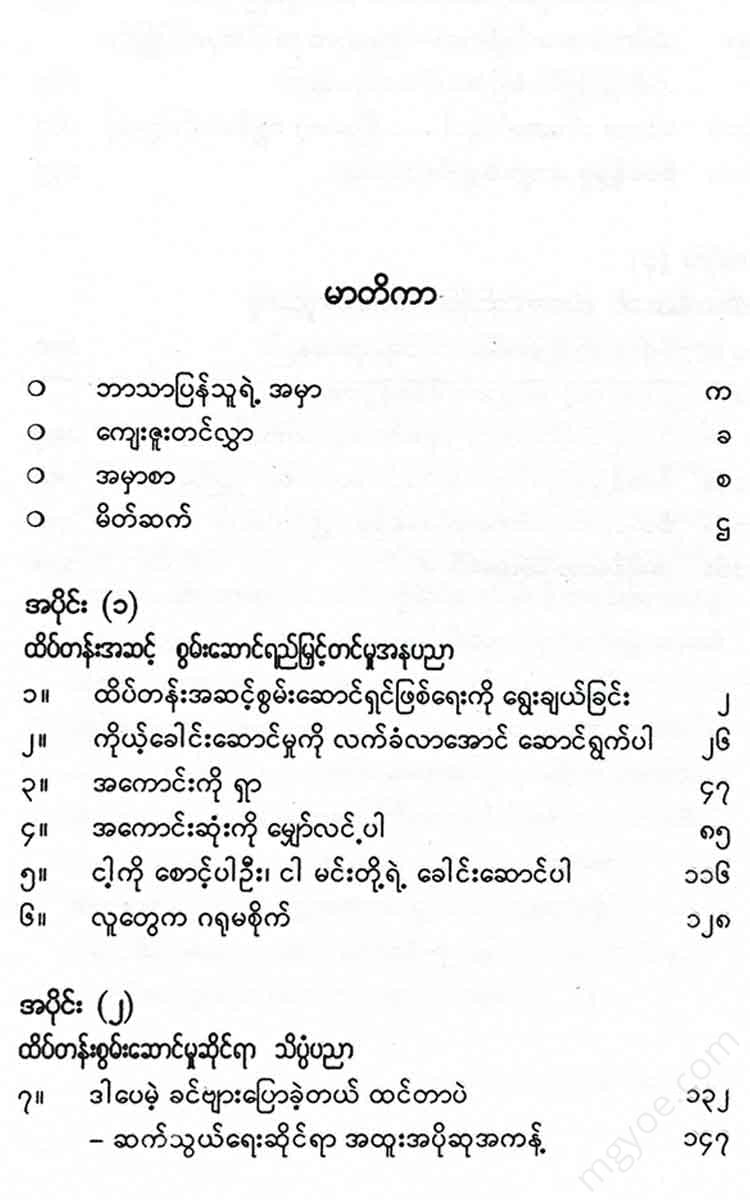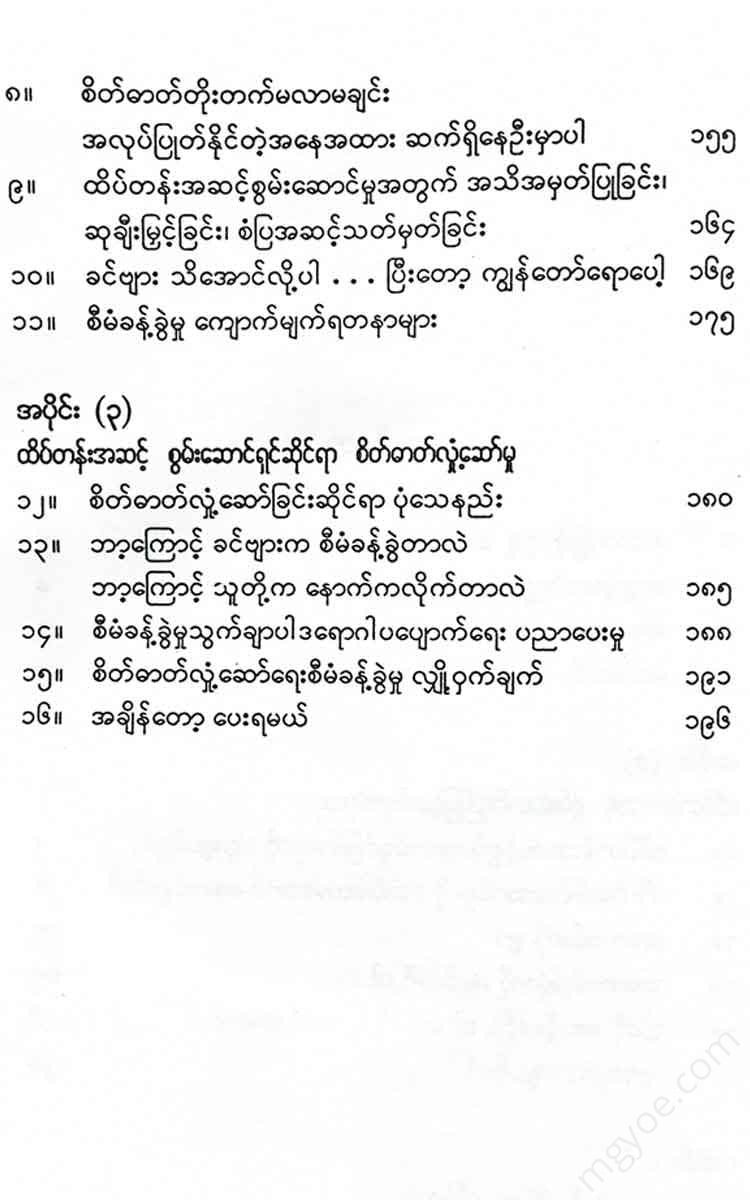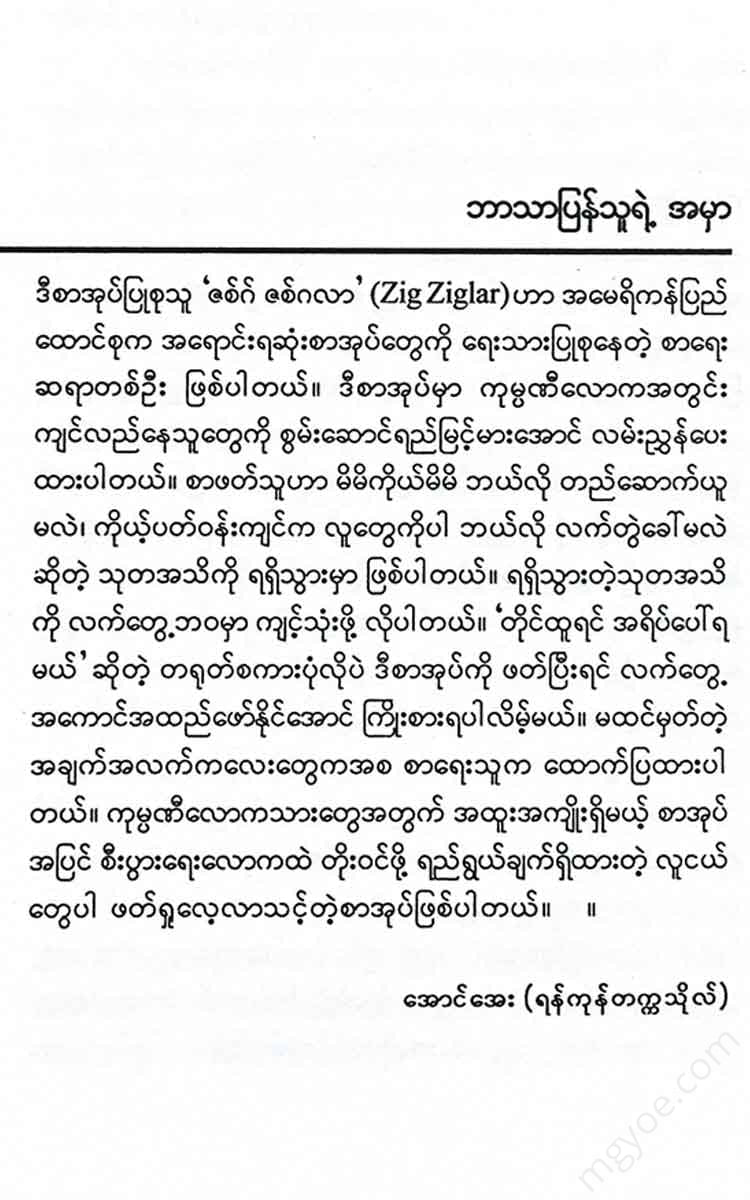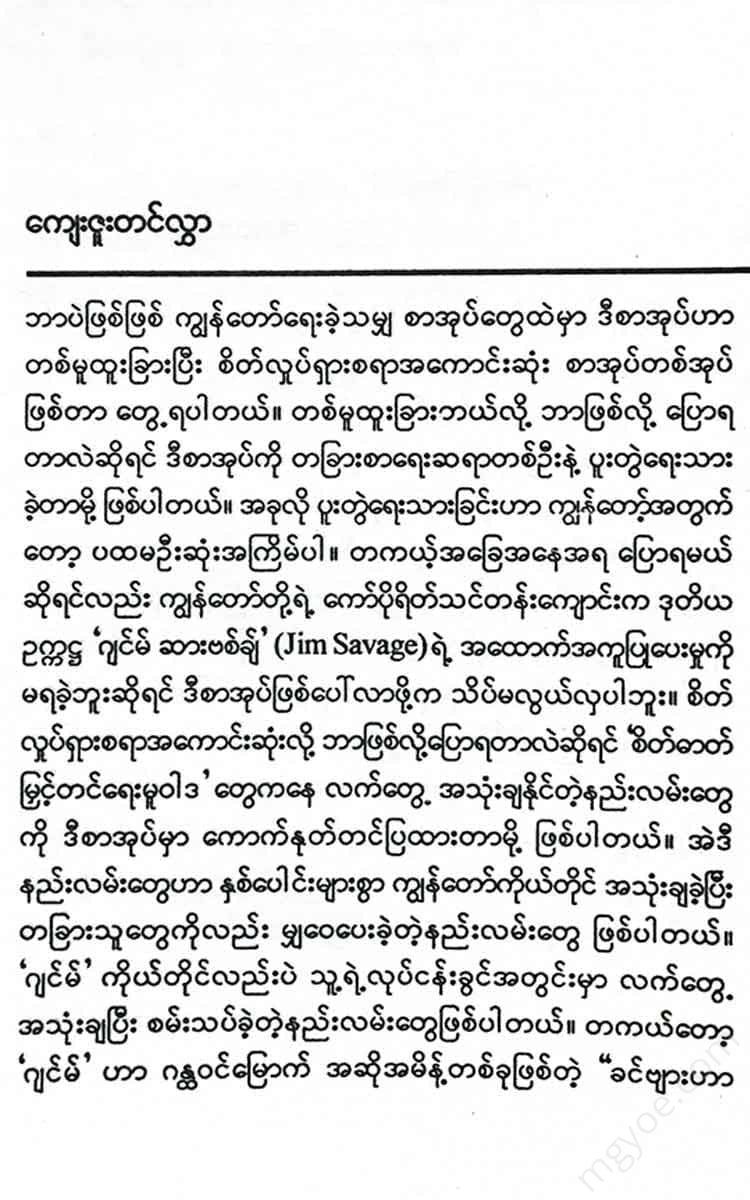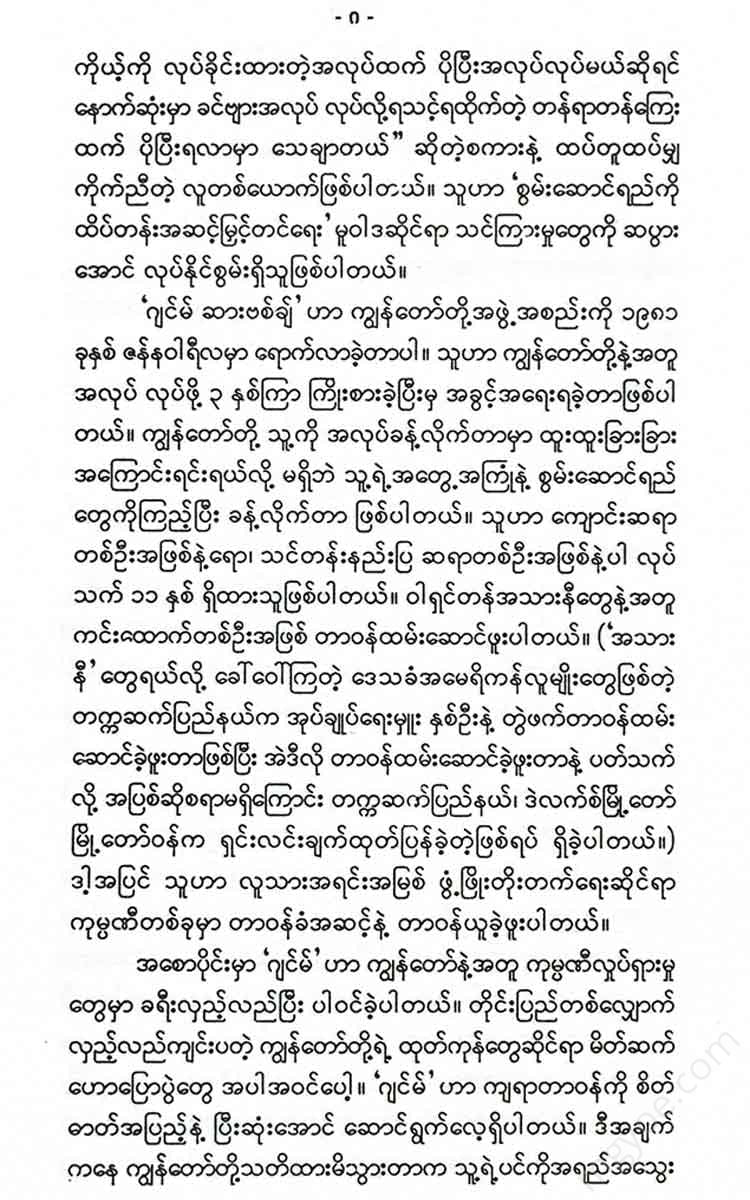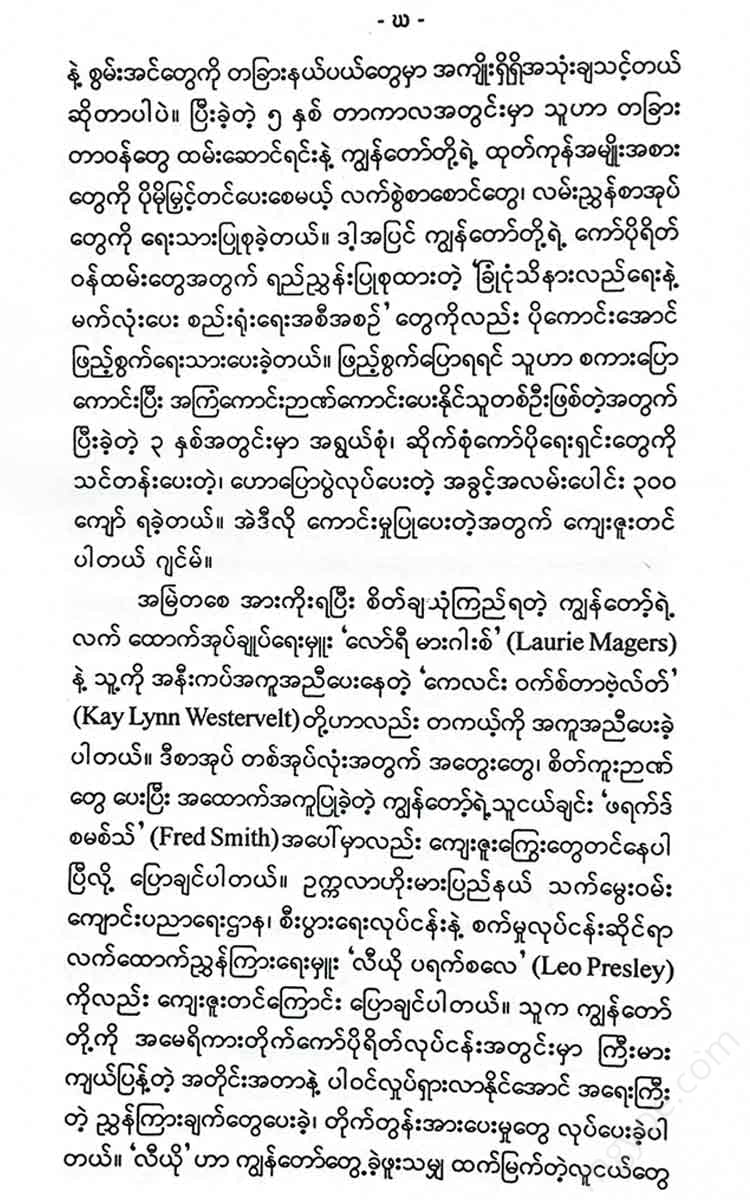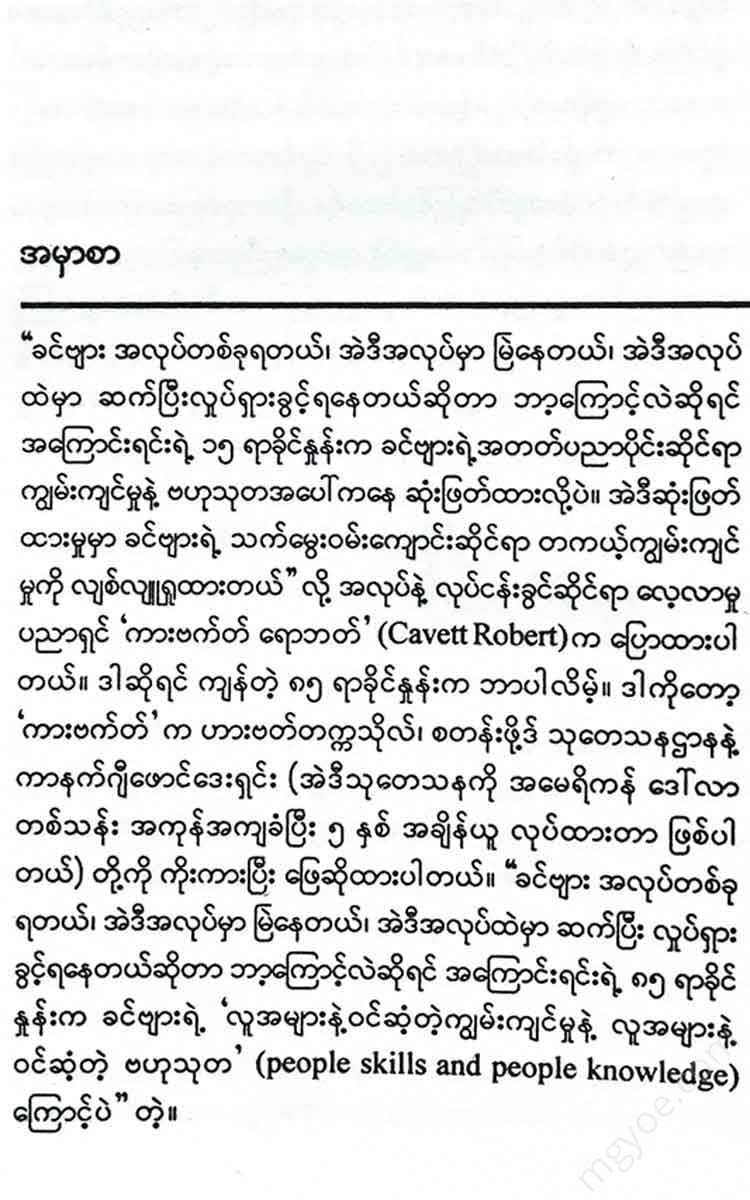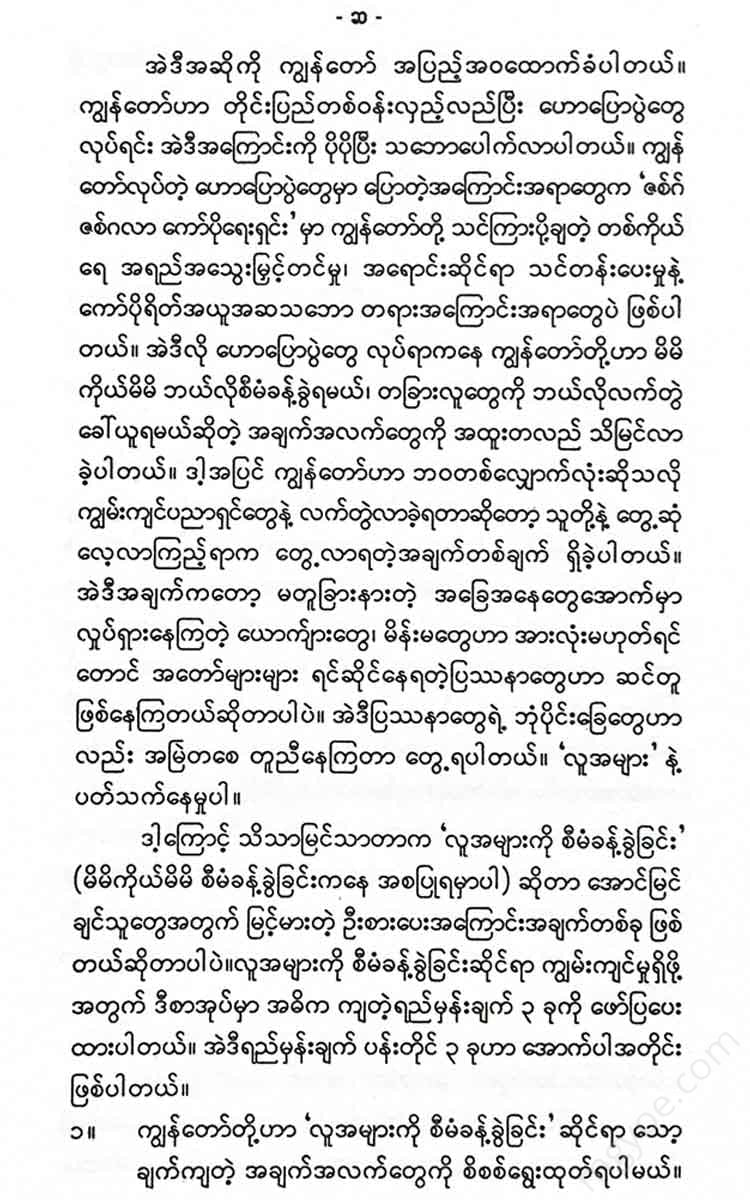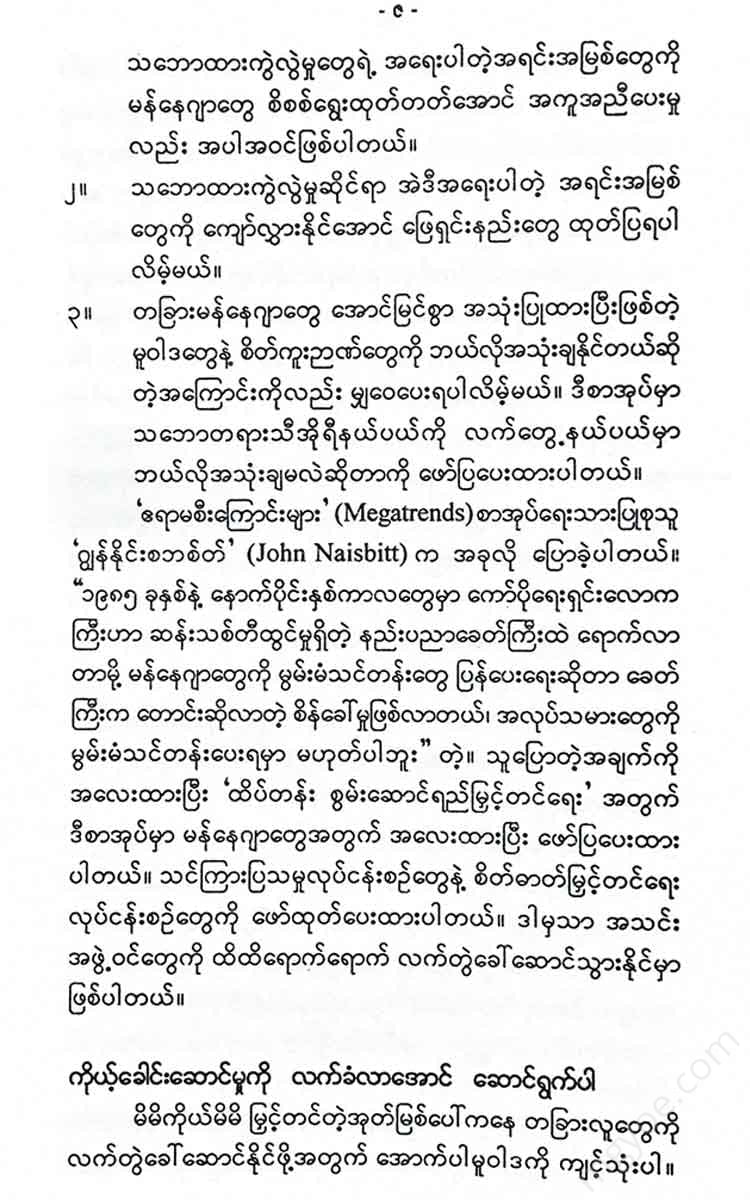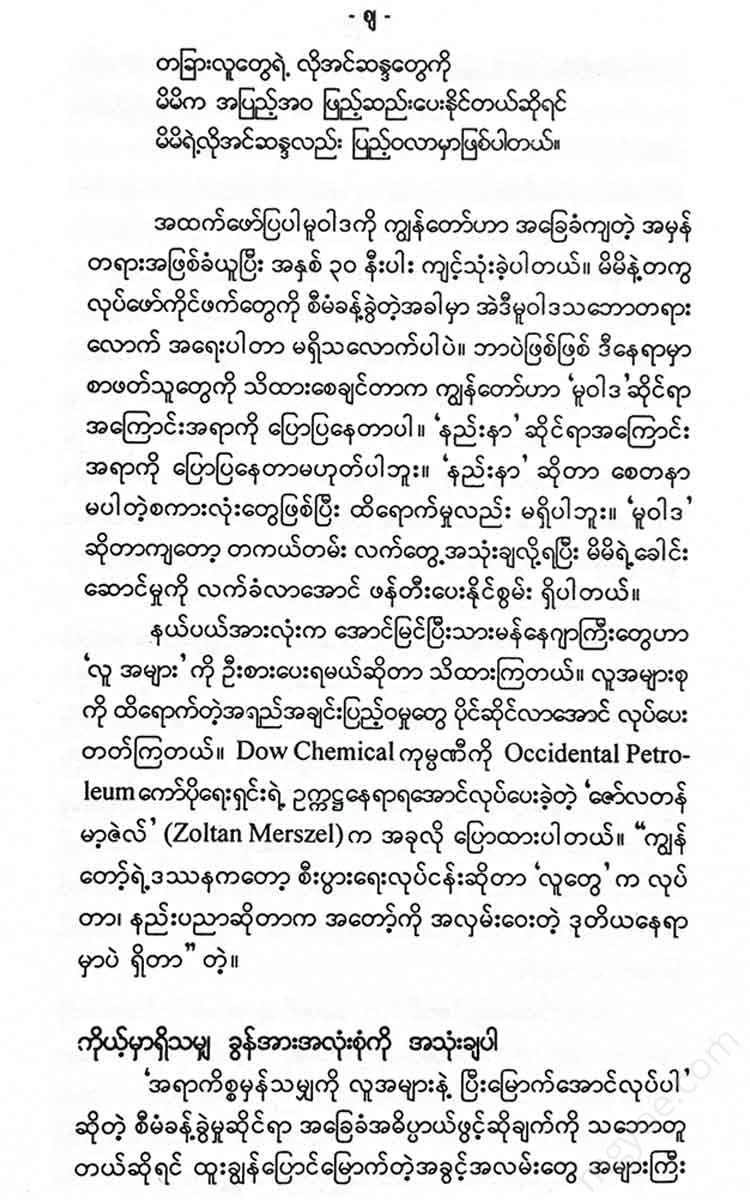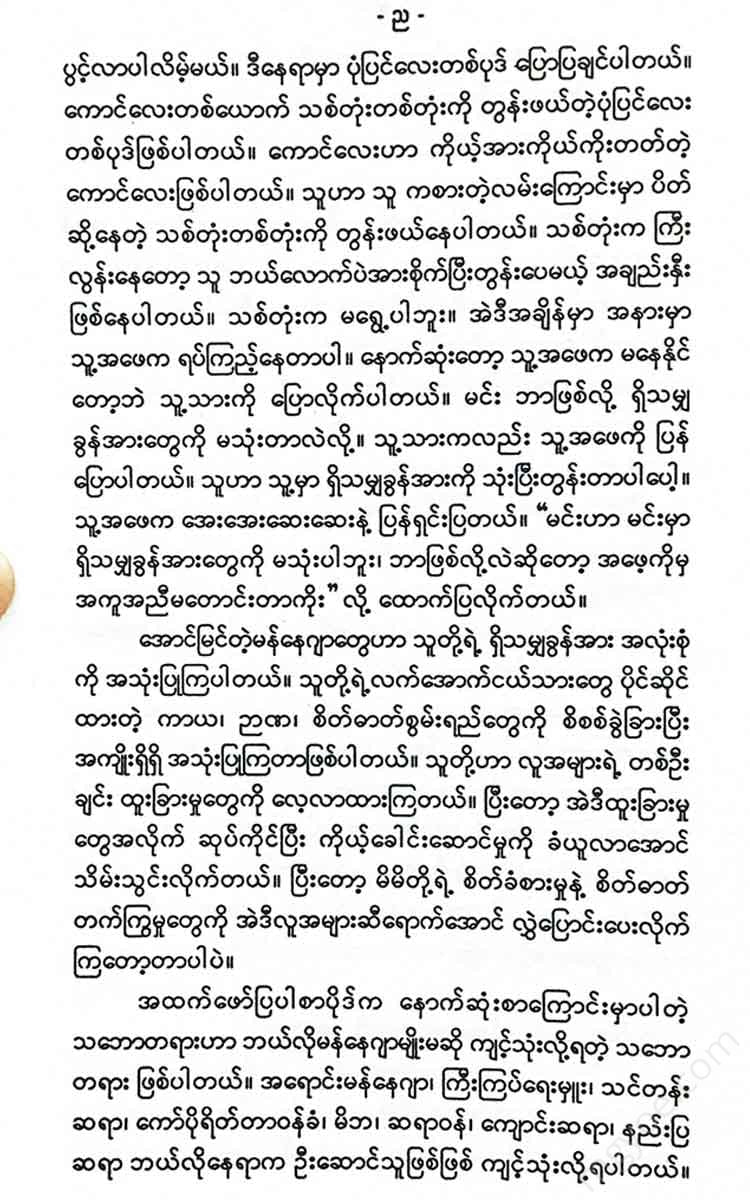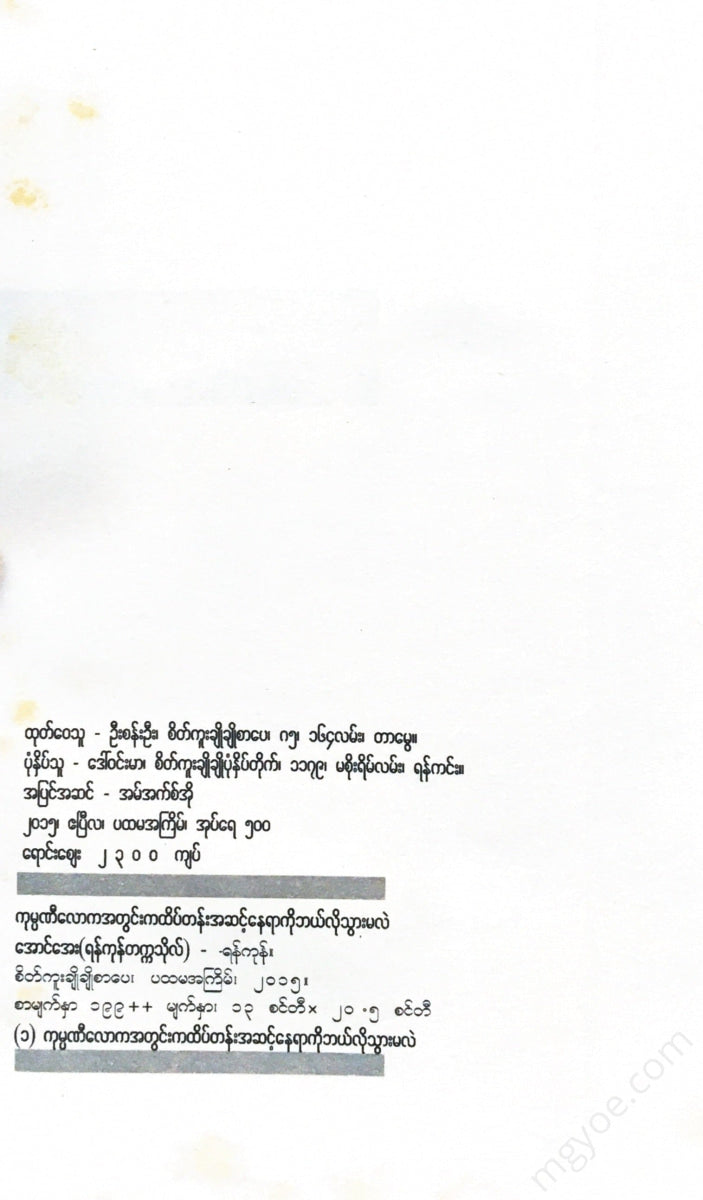စိတ်ကူးချိုချိုစာပေ
Aung Aye (Yangon University) - How to get to the top level in the corporate world
Aung Aye (Yangon University) - How to get to the top level in the corporate world
Couldn't load pickup availability
[1] Choosing to be a top performer
We are free to choose an option, and then the choice we make becomes our own.
Mary Crowley
Our success in life is determined by our choices. We have to make choices. These choices will teach us how to manage ourselves and others, and will determine our success. To make clear choices effectively, we need to understand the difference between “reacting” and “responding.”
On January 23, 1981, I was in Kansas City, Missouri. It was one of those weeks. I was so far from home that I couldn’t live without food. I wasn’t being punished, but I felt like I was being punished. I was in a different place. That morning I was going to do a recording that would last four hours. When I was recording, I had to speak loudly and with a rhythmic, rhythmic, and rhythmic accent. I had to be very careful about this. Only then would the people listening to this recording be able to listen with interest and remember what I was trying to say.
That night, my four-hour recording session went smoothly. There were no mistakes. (I can speak about 280 words per minute. When I’m feeling up to speed, I can get to 450 words per minute.) I finished recording at exactly 1:00 p.m. We were going to Dallas, and our flight was at 3:00 p.m., so it was a rush hour. We were told to arrive at the airport an hour before our flight. This also meant that it would take time to load the recorder we were going to take with us onto the plane. Our recorder was heavy and bulky. It was a 30-minute drive from our downtown hotel to the airport. My son-in-law, Chad Widmeyer, the general manager of At the Top, our corporation’s recording and dubbing company , drove us to the airport to get us there quickly.
We arrived at the airport at exactly 2:00. There were two long lines of people waiting to enter the airport. We joined the shortest of the two lines and joined them. While we were waiting, I noticed a ticket agent behind the counter walking towards a sign. The sign said “Closed.” If you flip the sign, it will say “Open.” I guessed that the ticket agent was flipping the sign to open a new entrance to the airport. As I had guessed, the female ticket agent flipped the sign to “Open.” Then she turned to the people in line and announced.
"If any of you have tickets for the 3-hour flight to Dallas, you can come here."
Wonderful, wonderful.
I went to her as fast as I could, so that even if there were people in line, I would be the first. The ticket inspector smiled at me and said.
"The flight to Alex at 3 o'clock has been canceled."
I responded enthusiastically to her words.
"it's great"
Hearing my response, the female ticket agent's face showed a look of confusion and she asked again.
"I said Alex's flight, which was scheduled to leave at 3, has been canceled. Why are you saying 'good'?"
I smiled back at her, who smiled at me as soon as she saw me. Then I told her.
“Here’s the thing. There are only three reasons why a flight to Dallas, Texas, could be canceled. Number (1) there’s a problem with the plane, number (2) there’s a suspicious passenger on the plane, and number (3) there’s bad weather. If one of those three things happens, I’m not going to fly that plane, and I’m not going to fly it. So, that’s good.”
"Hot Dog" I have some bad news to tell you •••
You've probably met some people who are only happy when they hear bad news. These people believe that life is tough and they want to tell the other person about it.
After listening to my response, the female airline ticket agent spoke again, placing her palms on either side of her hips and acting like a spokesperson.
"I'm not finished talking to you. Yes, the next flight won't leave until 6:05 PM."
I responded to her message with "That's great."
At that moment, people in two rows of people were turning to look at our conversation. They also thought it was strange that I was saying something like, “That’s great.” The female ticket agent looked at me with a completely surprised look on her face.
"I'm confused, is the only word you can say in this world, 'Good luck'? I'm telling you that you'll have to sit at this airport for 4 hours to catch the next plane."
I explained with a smile.
"Well, I'm 54 now, and I've never waited for a flight in this Kansas airport for more than four hours. It's a new experience for me. And it's very comfortable to sit in the airport and wait. If you want to have a coffee,
"I just went to a coffee shop and had a drink, and I could sit and do my work in the comfort of this airport, and I got to use a high-end office for four hours without having to pay anything. So I said, 'That's great.'"
People who think positively, even more than optimists, need to think positively and be optimistic.
I think the reader is probably thinking this at this point..
"Mr. Ziegler, I think I can go as far as you say with a "positive mindset." But is that really the limit?"
You can think of another one.
"Can he really do what he wrote in his letter?"
It's like telling your family members when you're about to leave home, "Don't worry, I'll never do anything to ruin your family's reputation." I don't lie to ruin my reputation. I actually acted like that.
Having said that, the reader might ask:
"Okay, Mr. Ziegler, let's say you did what you said. Tell me the truth, did you really mean what you did?"
I will answer this question like this.
"What's on my mind?"
At first, I didn't think much of it. Like most travelers, I get frustrated with the inconveniences of traveling. But how do you react when faced with a situation that you can't do anything about, like a canceled flight? You can react in a positive way, or you can react in a negative way. Positive reactions are positive. Negative reactions are negative. I chose to react in a positive way.
Let me explain the difference between a beneficial reaction and an adverse reaction. Let's say we go to a doctor because we're feeling unwell. He'll probably run tests and write a prescription for us to take. Then he'll tell us to come back the next day. When we go back the next day, the doctor will do more tests. If he's worried and says he'll change the medication, then the medication he gave us is a "negative reaction." If the doctor smiles and gives us the same prescription, then the medication he gave us is a "negative reaction."


